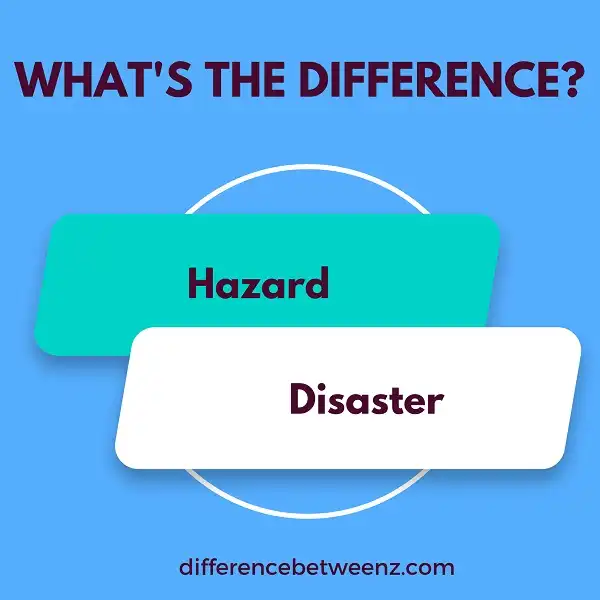A hazard is an event or situation that has the potential to cause harm. A disaster, on the other hand, is a hazardous event that has actually caused harm. In this blog post, we’ll take a closer look at the key differences between these two terms. We’ll also explore some of the most common hazards and disasters that can occur in our lives. By understanding the difference between these two concepts, we can better protect ourselves and our loved ones from potential harm. Stay safe!
What is Hazard?
A hazard is defined as a potential source of harm or adverse health effect on a person or the environment. Hazards can be physical, chemical, biological, or radiological.
- It can also be a new technology or a natural phenomenon. Hazard is often used interchangeably with the term “risk.” However, risk implies that there is a probability that something bad will happen, while hazard simply denotes a potential for harm.
- Hazards can be present in any number of situations, including the workplace, the home, during recreation, and in the natural environment. Recognizing hazards is the first step in preventing harm.
- In many cases, hazards can be eliminated or controlled through engineering or administrative controls. However, in some cases hazards cannot be completely eliminated and individuals must take steps to protect themselves from harm.
What is Disaster?
Disaster can strike at any time and without warning. It can be something as small as a house fire or as large as a hurricane. Regardless of its size, a disaster can have a profound impact on those who are affected by it. Disasters can cause physical and emotional damage, and they often lead to financial hardship. In the aftermath of a disaster, people often come together to support one another. This sense of community is one of the many positive things that can come out of a difficult situation. Disaster can be devastating, but it can also bring out the best in people.
Difference between Hazard and Disaster
- A hazard is a potential expansion that could cause harm to people or property. A disaster is an event that actually does cause harm to people or property.
- Many factors can create a disaster, but usually, some type of hazard must be present for a disaster to occur. For example, if a hazardous chemical spill occurs near a populated area, the possibility of a disaster is increased.
- If the wind picks up and carries the spill away from the populated area, then a disaster is averted. In this way, it can be said that all disasters are Hazardous, but not all Hazardous events are Disasters. Disasters tend to be more widespread and cause more damage than Hazardous events.
Conclusion
Generally speaking, a hazard is an event or occurrence that has the potential to cause harm or damage. A disaster, on the other hand, is a hazardous event that results in widespread damage and/or loss of life.


